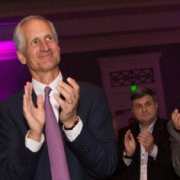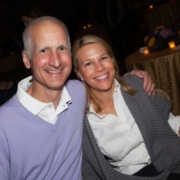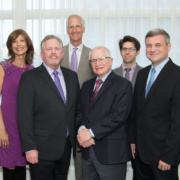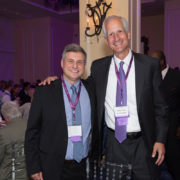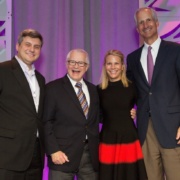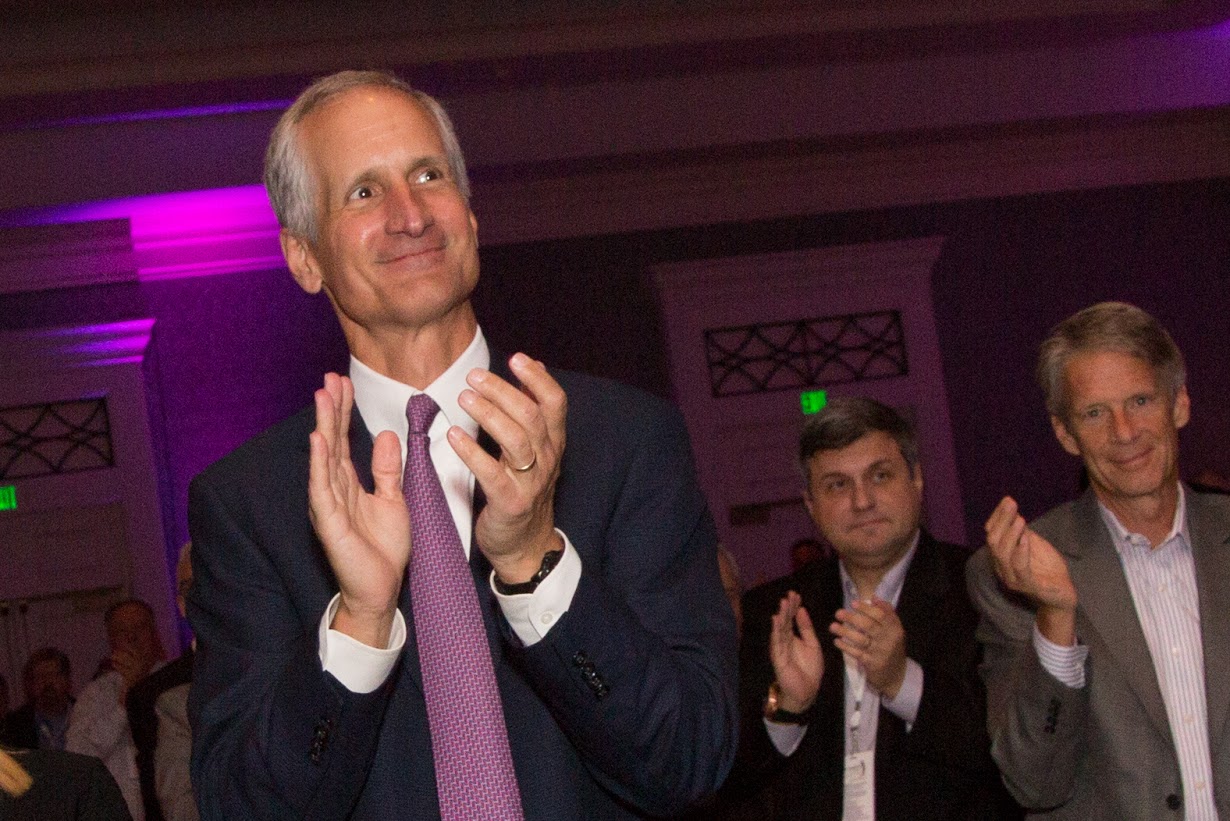
HOWARD YOUNG IS DEFYING THE ODDS
A Patient, Fundraiser & An Inspiration of Hope
Written By Julia Brabant
October 2019 (Updated August 2024)
Diagnosed: November, 2002
Status: No Sign of Active Cancer
21-Year Pancreatic Cancer Howard Young Defies the Odds, Raises Millions for Research
Based on statistics alone, Howard Young probably shouldn’t be here, but he’s never been the type to let numbers or data determine his fate. Now, nearly 22 years after receiving his initial pancreatic cancer diagnosis, the Atlanta, Georgia-based beer distributor has helped countless others “ignore the numbers” while replacing the sobering statistics so often heard by pancreatic cancer patients with some life-changing figures of his own.
He didn’t set out to be a trailblazer for the pancreatic cancer community – in fact, back before that day in November, 2002, the biggest hurdle the then-42-year-old saw in his path was hunting down a Christmas present that would please his wife, Becky. After suffering through a month’s worth of stomach pains, though, he trusted his gut, and soon after, he heard the words that would ultimately set the path for the next nearly two decades: he had pancreatic cancer.
Hearing news like this typically takes some time to digest, but time is not something many have much of in the weeks and months following a cancer diagnosis. So, because Howard was one of the “lucky ones,” or the 20% or so who receive the pancreatic cancer diagnosis early enough to have surgical intervention as an option, he knew what his future held. He also knew there would be hard days ahead. What he didn’t know at the time, though, was just how much he’d learn along the way about love, perseverance and the strength of the human spirit.
Howard’s surgery was not without complications, and the subsequent struggles were some of the worst he’d ever faced. He dropped 35 pounds from his long, lean 6’6” frame, and he spent as many as eight hours a day receiving intravenous drugs so powerful he could feel them burning through his veins. He underwent months and months of chemotherapy and 29 radiation treatments, and when his doctor concluded he’d done all that he could do, Howard refused to accept his fate. He was a father of three daughters, after all, and he’d yet to see them graduate high school, marry or have children. He didn’t have any intention of missing out on these milestones.
So, he decided to seek a second opinion from Dr. Daniel Von Hoff of the Translational Genomics Research Institute (TGEN), setting the wheels in motion for a relationship that would help change the face of the modern pancreatic cancer community. One of the globe’s most prolific pancreatic cancer researchers, Dr. Von Hoff’s studies and clinical trials have led to some of the most significant medical advances ever made against the disease. And while his scientific contributions and breakthroughs have saved and extended countless lives, it was his approach to working with pancreatic cancer patients that set him even further apart from the pack.
“Here’s someone so brilliant that he’s working hand-in-hand with geneticists, but he’s also able to break down incredibly complex medical terminology into terms any patient can understand,” Howard said, of Dr. Von Hoff’s bedside manner. “Talking with him opened up a whole new world of hope for me, and not false hope, either – real, true hope, translated in plain language.”
That hope proved especially valuable in 2008, when Howard had a cancer recurrence in his lungs. Scans revealed multiple nodules in both lungs. A wedge resection for the largest nodule revealed that it was metastatic cancer in both lungs. Howard reviewed with Dr. Von Hoff, and he made him aware of a phase 2 clinical trial that was having success. Howard embarked on this 6-month chemotherapy protocol utilizing Gemzar and Abraxane. After just 3 months, new CT scans revealed that the cancer was not visible. This supported Howard’s belief in the positive effect of clinical trials.
After completing the Phase 2 trial, Howard embarked on four different six-month chemotherapy treatments to attack any remaining cancer cells: Temodar, Erbitux, Nexavar and Celebrex. This was also supported with two years of Hydroxychloroquine.
Everything was fine until, once again, a CT scan on May 31, 2013 revealed that the nodules had returned in both lungs as before. Dr. Von Hoff said that patients that had success with the Gemzar and Abraxaine were also having success with recurrences. Howard once again began a 6-month protocol of these chemotherapies which had now become approved by the FDA as a standard of care treatment for pancreatic cancer.
Fast forward to Oct. 25, 2015, when a CT scan revealed that he had a mass in his lower lobe of his left lung. The doctors said it looked different than what he’d had before and “didn’t look like typical pancreatic cancer.”
It turned out the mass was, in fact, metastatic pancreatic cancer, but because it looked so different, Dr. Von Hoff and the team at TGEN wanted to remove it and map its genome to learn more about it. While Howard’s local doctor in Atlanta believed he could perform the surgery and remove the entire lobe, a doctor in Scottsdale, Arizona believed she could salvage at least half of it – which she ultimately did just that.
“She was amazing,” Howard said. “I woke up with zero pancreatic cancer.”
After the procedure, Howard began having chemotherapy, following a protocol known as the “TGEN Triple.” It involved taking a combination of nab-paclitaxel, gemcitabine and cisplatin for a six-month span. Howard completed three out of the six months of chemotherapy but stopped before completing the entire regimen due to the toll the treatments were taking on his body.
After mapping Howard’s genome, the TGEN team discovered that while his helix looked good, he had an overabundance of a particular protein called GATA6. His care team believed this overabundance had something to do with why he responded so well to chemotherapy despite not completing the entire six-month regimen.
They also concluded that, if they could find a way to “overexpress” GATA6, it could be a gamechanger for people facing pancreatic cancer diagnoses. Research shows that many long-term pancreatic cancer survivors had the same GATA6 overexpression.
Now, almost 22 years later and with the help of Dr. Von Hoff, he’s walked all three daughters down the aisle, gained five new grandchildren and has another one on the way.
“These are things I never thought I’d see – college, marriages, babies being born,” Howard said. “I took a lot for granted before this experience, but I sure don’t do that now.”
He also continues to draw upon the knowledge and hope he gained working with Dr. Von Hoff to encourage countless other pancreatic cancer patients to join clinical trials and otherwise work toward a cure.

